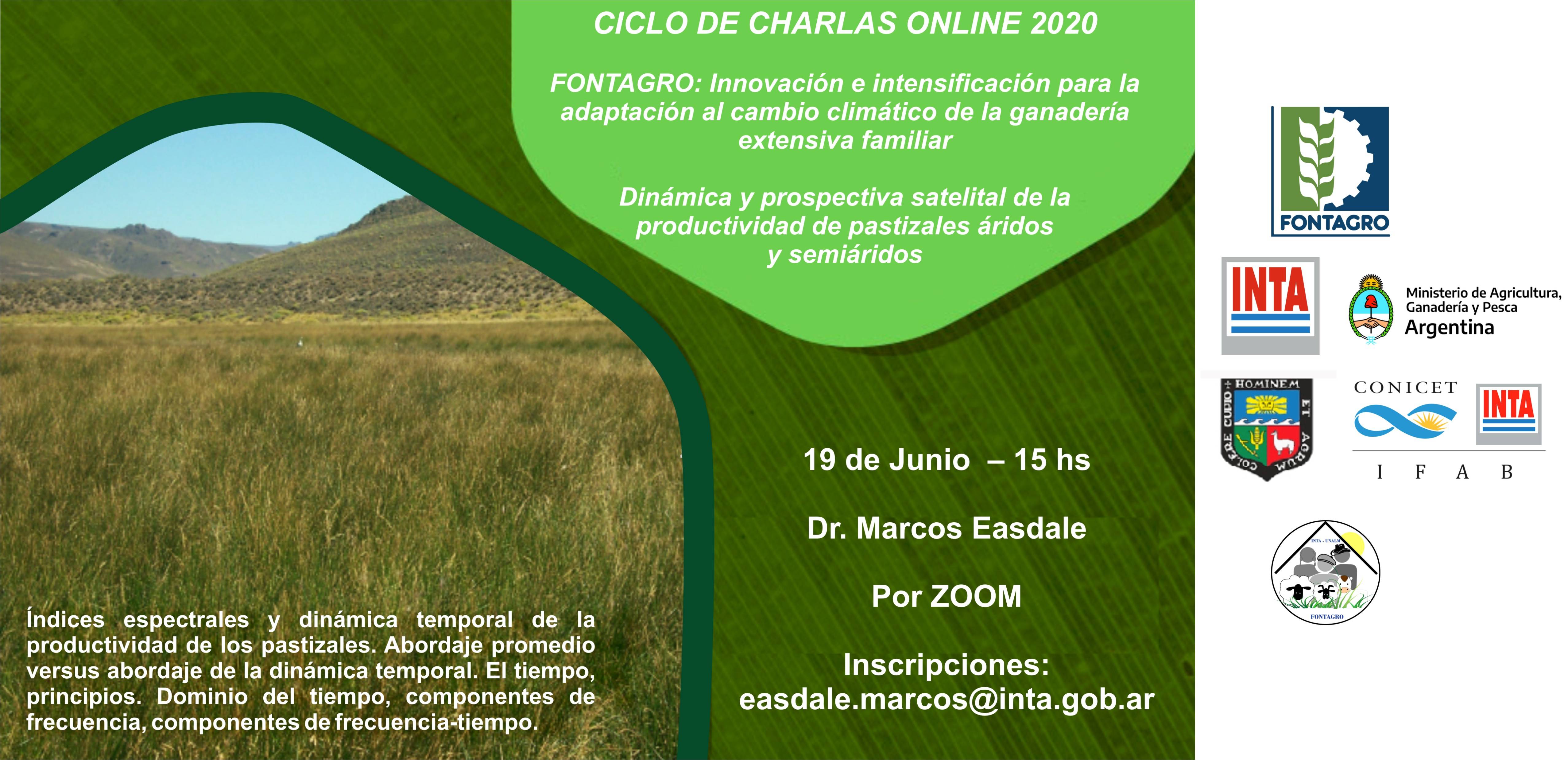Dr. Marcos Easdale gave a series of 5 talks entitled: Dynamics and satellite prospective of the productivity of arid and semi-arid rangelands.

Climate change confronts extensive livestock farming with adverse situations, such as changes in vegetation cover, which reduce the availability of forage for livestock. Among the technological innovations for adapting to climate change proposed by the FONTAGRO Project "Adaptation to climate change in extensive family livestock farming" are forage evaluation and adjustment of stocking rates. We understand that the stocking rate is linked to pasture productivity, so understanding its dynamics and having a prospective of its behavior will allow us to improve its use and conservation.
In this context, we invited Dr. Marcos Easdale to give a series of 5 talks entitled: Dynamics and satellite prospective of the productivity of arid and semi-arid rangelands.
Lecture 1. Dynamics and satellite prospective of arid and semi-arid rangeland productivity. NDVI temporal analysis tools.
Dr. Marcos H. Easdale talked about different tools available for the temporal analysis of vegetation index series used to study the temporal dynamics of rangeland productivity in arid and semi-arid regions.
The dynamics of global changes challenge the way we study and intervene in current pastoral systems in arid and semi-arid regions. Spatial studies have had a lot of theoretical and applied development in very diverse ecosystems in the last 40 years. On the other hand, time series studies still have a long way to go. In this first talk we propose to introduce the study of variables over time, as a complement to spatial studies in pastoral systems, using satellite information. For this purpose, some traditional approaches are presented and discussed, which are contrasted with novel proposals, based on comparatively more recent developments and applications.
The talk starts from the premise that time is a dimension that requires new approaches. Many models in ecology and agronomy, used to study patterns and dynamics over time of biological systems, assume seasonality. This decision is based on the fact that the rate of change of environmental factors is slow in limited observation windows (decades). In a stationary process, parameters such as mean and variance do not change over time. Therefore, the annual cycle of primary productivity, as a recurrent periodic system, is often considered a stationary process. However, the temporal dynamics of pastoral ecosystems are regulated by environmental (mainly climate) and anthropogenic (grazing) factors. In particular, climate change is a typically non-stationary phenomenon and generates a growing need to develop an approach to the complexity of the temporal behavior of pastoral systems, which allows understanding and predicting productive dynamics in rapidly changing environments. This situation challenges fundamental assumptions of many current concepts and models. As an example, data series of the Normalized Difference Vegetation Index (NDVI) obtained from remote sensing will be used, since it is one of the most widely used spectral indices globally in studies associated with vegetation behavior.
The use of NDVI time series as indicators for the study of the temporal dynamics of grassland productivity is presented. Applications of time series analysis are shown referring to: i) time domain analysis, ii) frequency component analysis, and iii) frequency-time component analysis.




